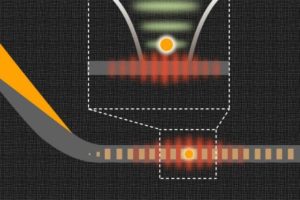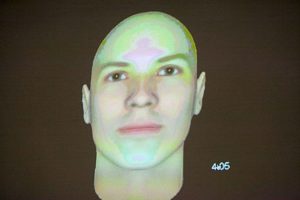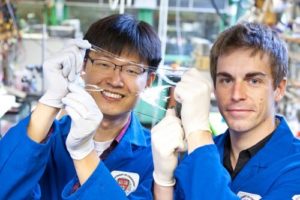Harvard
Drug developed by Hebrew U. and others holds promise for treatment of wounds
Jerusalem, February 7, 2011 — A low cost, nanometer-sized drug to treat chronic wounds, such as diabetic foot ulcers or burns, has been developed by a group of scientists from the Hebrew University of Jerusalem, Harvard Medical School and othe…
Young female chimpanzees appear to treat sticks as dolls
CAMBRIDGE, Mass. — The must-have gift for young female chimpanzees this holiday season might be in the Christmas tree, not under it.
That’s the finding of scientists at Harvard University and Bates College, who say female chimpanzees appear to tr…
Autism Consortium 2010 Symposium: New therapeutics focus, family resource guide announced
Boston — November 1, 2010 — The Autism Consortium, an innovative Boston area collaboration of researchers, clinicians, funders and families dedicated to catalyzing research and enhancing clinical care for autism spectrum disorders (ASDs), announc…
Mice that ‘smell’ light could help us better understand olfaction
CAMBRIDGE, Mass. — Harvard University neurobiologists have created mice that can “smell” light, providing a potent new tool that could help researchers better understand the neural basis of olfaction.
The work, described this week in the journal …
Major moral decisions use general-purpose brain circuits to manage uncertainty
CAMBRIDGE, Mass. — Scientists at Harvard University have found that humans can make difficult moral decisions using the same brain circuits as those used in more mundane choices related to money and food.
These circuits, also found in other anim…
Biosecurity workshops to strengthen communities, communication
Harvard Medical School, Harvard Medical International, Harvard School of Public Health and Key3Media Group, Inc. will host a series of educational workshops designed as intense, one-day interactive seminars that will take place from May through July in Boston; Washington, D.C.; and Los Angeles.





